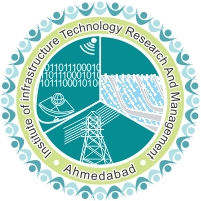Predicting energy transfer to the workpiece in wire electrical discharge machining using inverse heat transfer technique
Authors :- Sathavara P.; Parwani A.K.; Chaudhuri P.
Publication :- Heat and Mass Transfer/Waerme- und Stoffuebertragung, (Springer) 2024
In the context of wire electrical discharge machining (WEDM), determining the fraction of thermal energy transferred to the workpiece (fc) is crucial for numerical modelling. This information is necessary to anticipate material removal mechanisms and understand thermal behaviour. In this study, two metaphor-less Rao algorithms are modified to solve the inverse heat conduction problem (IHCP) for the estimation of fc during the WEDM process without knowing any prior information on the transient functional form of fc. These two algorithms are compared in terms of accuracy and convergence speed. The Rao-1 algorithm stands out with high accuracy and rapid convergence. To evaluate the algorithm applicability in estimating fc, the following cases are considered: (1) a numerical investigation with artificial Gaussian error in simulated temperature readings and (2) a real-time experiment on WEDM setup with varying discharge currents. The RMS error between the actual and estimated value of fc with SS-304 material during numerical investigation is found to be 562 W/m which is just 0.008 times of heat source. Real-time experiments reveal that the discharge current is directly proportional to the total energy supplied by the wire as well as fc. The fc values estimated by the proposed inverse algorithm with various discharge currents fall within the range of 15–18%, aligning with the existing literature. This shows the proposed methodology is accurate and can be extended to incorporate other machining processes.

